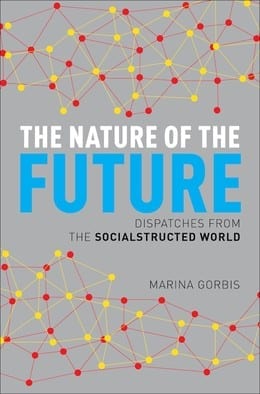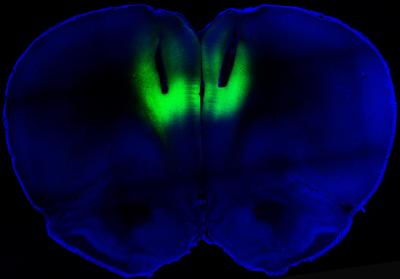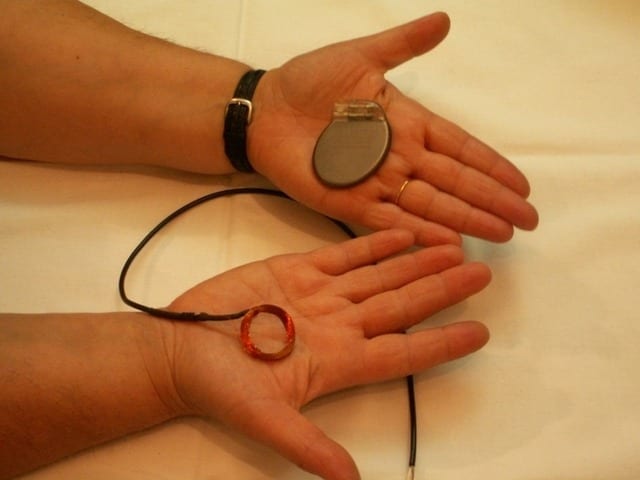
In The Nature Of The Future: Dispatches From The Socialstructed World, Marina Gorbis argues that as more and more of our activities are quantified online, your actions could become a new currency. But what happens if good behavior is commodified?
In The Nature Of The Future: Dispatches From The Socialstructed World, Marina Gorbis argues we are moving away from the depersonalized world of institutional production toward a new economy built on social connections and rewards–a process she calls socialstructing. Along with the exciting opportunities to create new kinds of social organizations–systems for producing not merely goods but also meaning, purpose, and greater good–there is a possibility that this form of creation will bring new challenges, new inequities, and new opportunities for abuse. We need to understand the potential disadvantages of socialstructing as well, if we are to minimize the potential pitfalls. The following is an excerpt from the book, available April 9.
In his novel Dead Souls, originally published in 1842, the celebrated Russian writer Nikolai Gogol paints the exploits of Chichikov, a man on the lower rungs of Russian society. Driven by a desire to enhance his social standing, Chichikov develops an ingenious scheme: He travels to Russian villages and buys the records of dead serfs. It’s a brilliant idea that capitalizes on a unique and grotesque feature of feudal Russian society: ownership by landlords of the people who live and work on their land.
The number of serfs, or “souls,” one owns is a measure of one’s economic and social status. Landowners, in fact, pay taxes based on that number. The government keeps count of owned souls based on census numbers. Unfortunately the census takes place only infrequently, and many landowners end up paying taxes on their dead serfs. Grasping an opportune moment between the two censuses, Chichikov buys records of these dead souls from landowners eager to lighten their tax burden. Papers certifying Chichikov’s ownership of four hundred souls rapidly elevate his status: landed gentry open their homes to him, try to give away their daughters in marriage, and celebrate him at town functions. And all it took was a record of ownership of hundreds of souls.
With social connections, social standing, and social influence becoming new standards of value and something that we increasingly measure, we may end up creating many more Chichikovs. But instead of collecting records of dead souls, the modern day Chichikovs may be driven to acquire more followers on Twitter or friends on Facebook or otherwise hoard social connections for money, fame, or reputation.
THE RISE OF SOCIAL CURRENCIES
As we embark on the large-scale enterprise of creating a new infrastructure for social currencies, it is important to remember that social currencies operate quite differently than money. Their purpose is to facilitate social flows that often operate not on market principles but on intrinsic motivations to belong, to be respected, or to gain emotional support. Once we start measuring such connections or such flows, we may purposefully or inadvertently take intrinsic value out of them, creating perverse motives and incentives. In fact, instead of turning market transactions into social flows, we might be turning social interactions into market commodities. In the words of sociologist Chase, we would be applying ontic measurements to ontological phenomena.
The Latest Bing News on:
Web reputation
- Nobu Ryokan Malibu Extends Reputation as ‘Relaxing Retreat' With New HigherDOSE Partnershipon May 8, 2024 at 3:35 pm
The goal: to offer access to HigherDOSE's "high-tech longevity" devices in the comfort and privacy of Nobu's oceanside suites. $799 $962 17% off Buy: HIGHERDOSE SAUNA BLANKET STARTER ...
- Student Senate’s Campaign to Better Its Reputationon May 8, 2024 at 12:41 pm
By Ella Prieto, Managing Editor As another academic year winds down, the Gettysburg College Student Senate has reflected on their year of work. While many members feel proud of their work and ...
- Google: Site Reputation Abuse Manual Actionson May 7, 2024 at 10:56 am
Google's SearchLiaison confirmed that the site reputation abuse policy enforcement "is really kicking off today" ...
- Exclusive Interview: Inside Star Wars Outlaws' Reputation Systemon May 7, 2024 at 10:04 am
Subscribe to our YouTube channel if you enjoy this interview and want to see more like it! Lastly, visit Game Informer's exclusive coverage HUB to learn more about the making of Star Wars Outlaws. I’d ...
- Google Began Enforcing The Site Reputation Abuse Policy Last Nighton May 7, 2024 at 4:51 am
Google said it began to enforce its new site reputation abuse policy last night. The policy went into effect on Sunday, May 5th, but Google did not announce it would take action until last night. As a ...
- Does cloud security have a bad reputation?on May 7, 2024 at 2:33 am
It seems to be fair game now to label cloud security as risky even though your data is likely safer there than on premises.
- Julen Lopetegui has a reputation for friction – but West Ham believe he is worth the riskon May 6, 2024 at 11:41 pm
Lopetegui has vast experience and a reputation for improving teams. He is a Europa League winner with Sevilla and has managed Spain and Real Madrid. His achievements at Wolves deserve closer scrutiny ...
- Next Solutions Group Among Observer's List of Top PR Firms for Crisis & Reputation Managementon May 6, 2024 at 2:22 pm
The Next Solutions Group (NSG), a corporate consultancy focused on advancing and protecting the reputation of its clients, has been named in The Observer's list of The Top PR Firms for Crisis & ...
- Klein’s reputation ruined by simply having same first name as crackpoton May 6, 2024 at 9:08 am
Think of it this way: What if you were a famous writer who, for years, had been ahead of the curve on major issues of worldwide significance (globalization, climate change, pandemics, social medi ...
- Reminder: New Google Search reputation abuse policy starts soonon April 30, 2024 at 1:18 pm
Google's new Search spam policy related to reputation abuse (or parasite SEO) will take effect in just a few days, after May 5.
The Latest Google Headlines on:
Web reputation
[google_news title=”” keyword=”web reputation” num_posts=”10″ blurb_length=”0″ show_thumb=”left”] [/vc_column_text]The Latest Bing News on:
Online reputation
- Ban On Protest Song 'Latest Blow' To Hong Kong Reputation: USon May 8, 2024 at 3:04 pm
The United States on Wednesday denounced Hong Kong's ban on a protest song sung by pro-democracy demonstrators, saying it further tarnished the financial hub's reputation.
- Over 850,000 people hit with online shopping scam that steals credit cards — how to stay safeon May 8, 2024 at 11:00 am
Even though shopping online has now become the norm, you still need to be careful when buying products from lesser-known stores, as doing so could lead to hackers stealing your credit card information ...
- Star Wars Outlaws Explains How the Reputation System Workson May 8, 2024 at 8:36 am
Star Wars Outlaws developers describe its Reputation system, which shapes how missions play out based on the player's standing with certain factions.
- Flaked Season 2 Streaming: Watch & Stream Online via Netflixon May 7, 2024 at 9:15 pm
Yes, Flaked Season 2 is available to watch via streaming on Netflix. Season two begins with Chip attaining the reputation of an outcast after actively advocating for Topher’s hotel. Meanwhile, Dennis ...
- Palworld dev slams lies and blind ‘hate campaign’ sullying Pocketpair’s reputationon May 7, 2024 at 5:00 pm
They claim it is a continuous ‘hate campaign’ done to sully the reputation of Pocketpair. The response comes in retaliation to negative remarks posted about the game online in wake of the Arkane Texas ...
- What Time Will The Beatles 'Let It Be' Be on Disney+? How to Watch the 1970 'Let It Be' Movie Onlineon May 7, 2024 at 12:30 pm
Over 50 years after the film’s release, Beatles fans will finally be able to stream the 1970 Beatles documentary, Let It Be, online, starting this week. The release of the original 1970 film, directed ...
- Helldivers 2 community floods Steam with over 200,000 positive reviews to save its reputationon May 7, 2024 at 6:49 am
Following the PSN controversy, Helldivers 2 players have posted over 200,000 positive reviews to try and undo some of the damage.
- Bad Reputation (2005) Streaming: Watch & Stream Online via Amazon Prime Videoon May 2, 2024 at 8:07 am
Bad Reputation (2005) is a teen drama thriller film. It centers around a high school girl who chooses to embody the labels other students have given her. It was written and directed by Jim Hemphill.
- Best Online Gambling Sites for 2024 – Top 10 Websites for Real Money Gambling in the USon May 1, 2024 at 8:39 am
Gambling sites provide online bettors with an array of exciting options to bet on, from poker to casino games, horse racing to sports betting, all ...
- Pharma’s corporate reputation begins to slide following COVID surgeon April 29, 2024 at 5:00 pm
After experiencing a brief boost during the COVID-19 pandemic, the pharma industry’s reputation has begun to drop again in the public’s eye, according to a recent report. Pharma’s corporate reputation ...
The Latest Google Headlines on:
Online reputation
[google_news title=”” keyword=”online reputation” num_posts=”10″ blurb_length=”0″ show_thumb=”left”]









